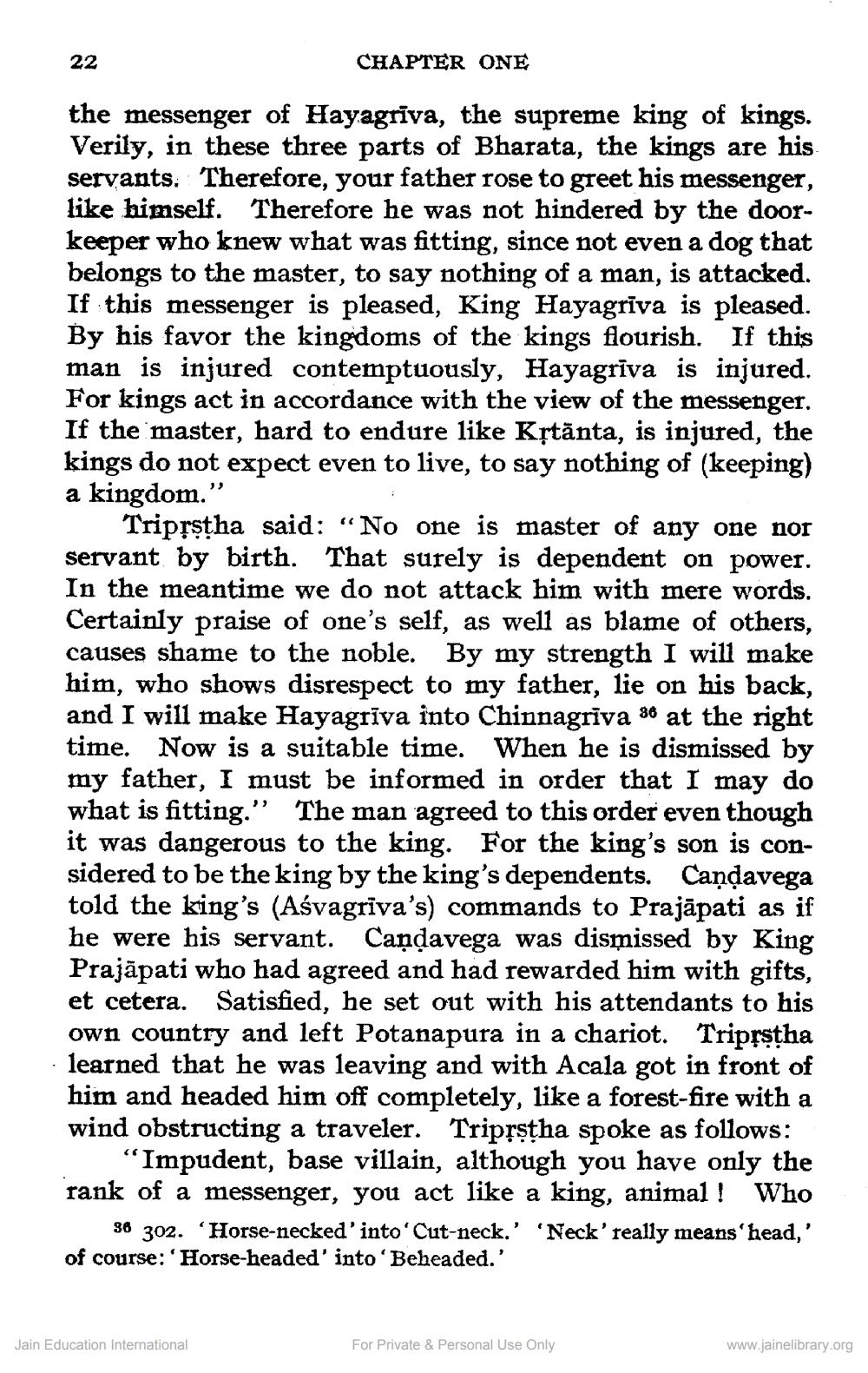________________
22
the messenger of Hayagrīva, the supreme king of kings. Verily, in these three parts of Bharata, the kings are his servants. Therefore, your father rose to greet his messenger, like himself. Therefore he was not hindered by the doorkeeper who knew what was fitting, since not even a dog that belongs to the master, to say nothing of a man, is attacked. If this messenger is pleased, King Hayagrīva is pleased. By his favor the kingdoms of the kings flourish. If this man is injured contemptuously, Hayagriva is injured. For kings act in accordance with the view of the messenger. If the master, hard to endure like Kṛtānta, is injured, the kings do not expect even to live, to say nothing of (keeping) a kingdom.'
CHAPTER ONE
در
Jain Education International
Tripṛṣṭha said: "No one is master of any one nor servant by birth. That surely is dependent on power. In the meantime we do not attack him with mere words. Certainly praise of one's self, as well as blame of others, causes shame to the noble. By my strength I will make him, who shows disrespect to my father, lie on his back, and I will make Hayagriva into Chinnagrīva 36 at the right time. Now is a suitable time. When he is dismissed by my father, I must be informed in order that I may do what is fitting." The man agreed to this order even though it was dangerous to the king. For the king's son is considered to be the king by the king's dependents. Candavega told the king's (Asvagrīva's) commands to Prajapati as if he were his servant. Canḍavega was dismissed by King Prajapati who had agreed and had rewarded him with gifts, et cetera. Satisfied, he set out with his attendants to his own country and left Potanapura in a chariot. Triprstha learned that he was leaving and with Acala got in front of him and headed him off completely, like a forest-fire with a wind obstructing a traveler. Tripṛstha spoke as follows:
"Impudent, base villain, although you have only the rank of a messenger, you act like a king, animal! Who 36 302. 'Horse-necked' into 'Cut-neck.' 'Neck' really means 'head,' of course: 'Horse-headed' into 'Beheaded.'
For Private & Personal Use Only
www.jainelibrary.org




